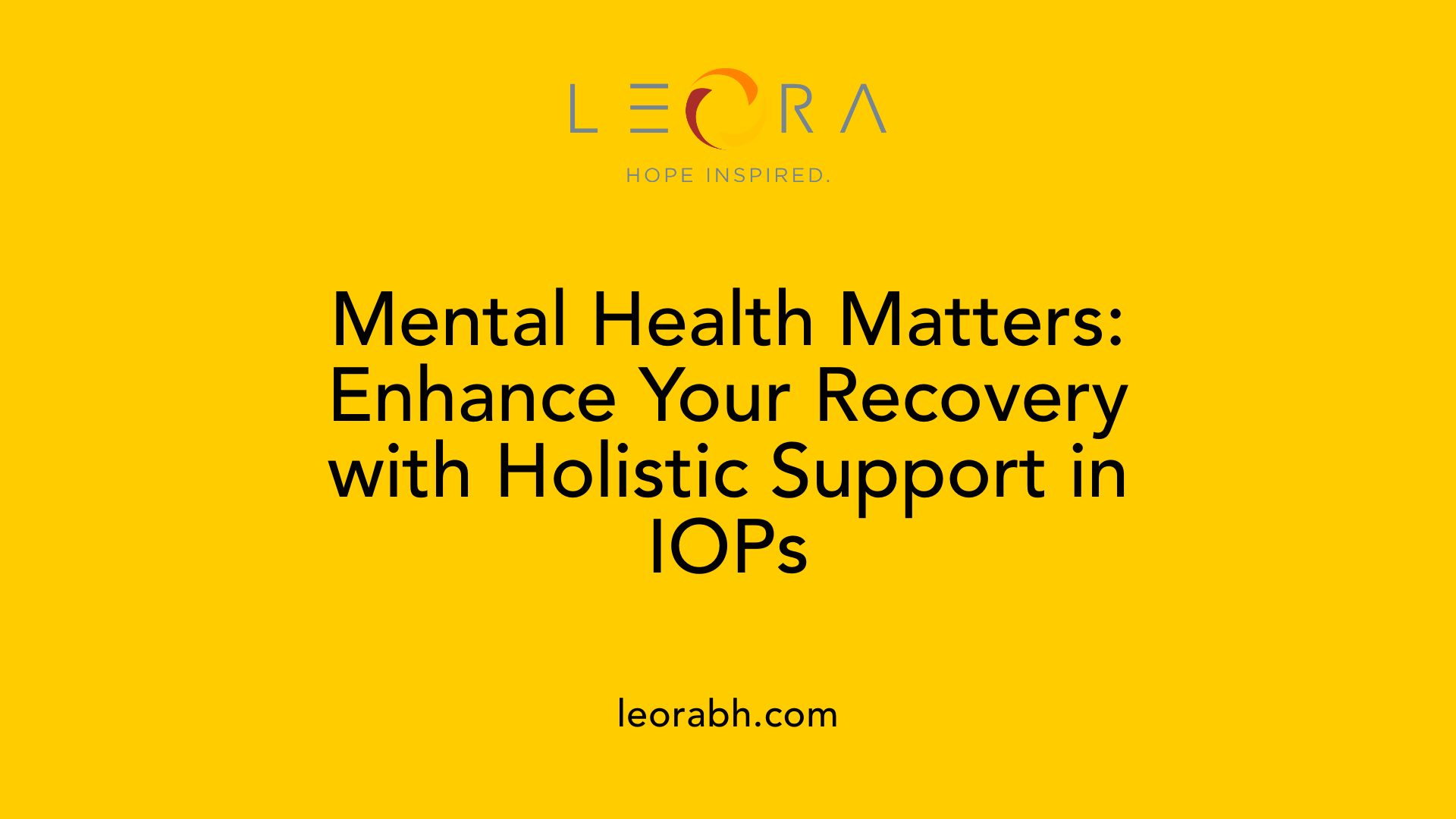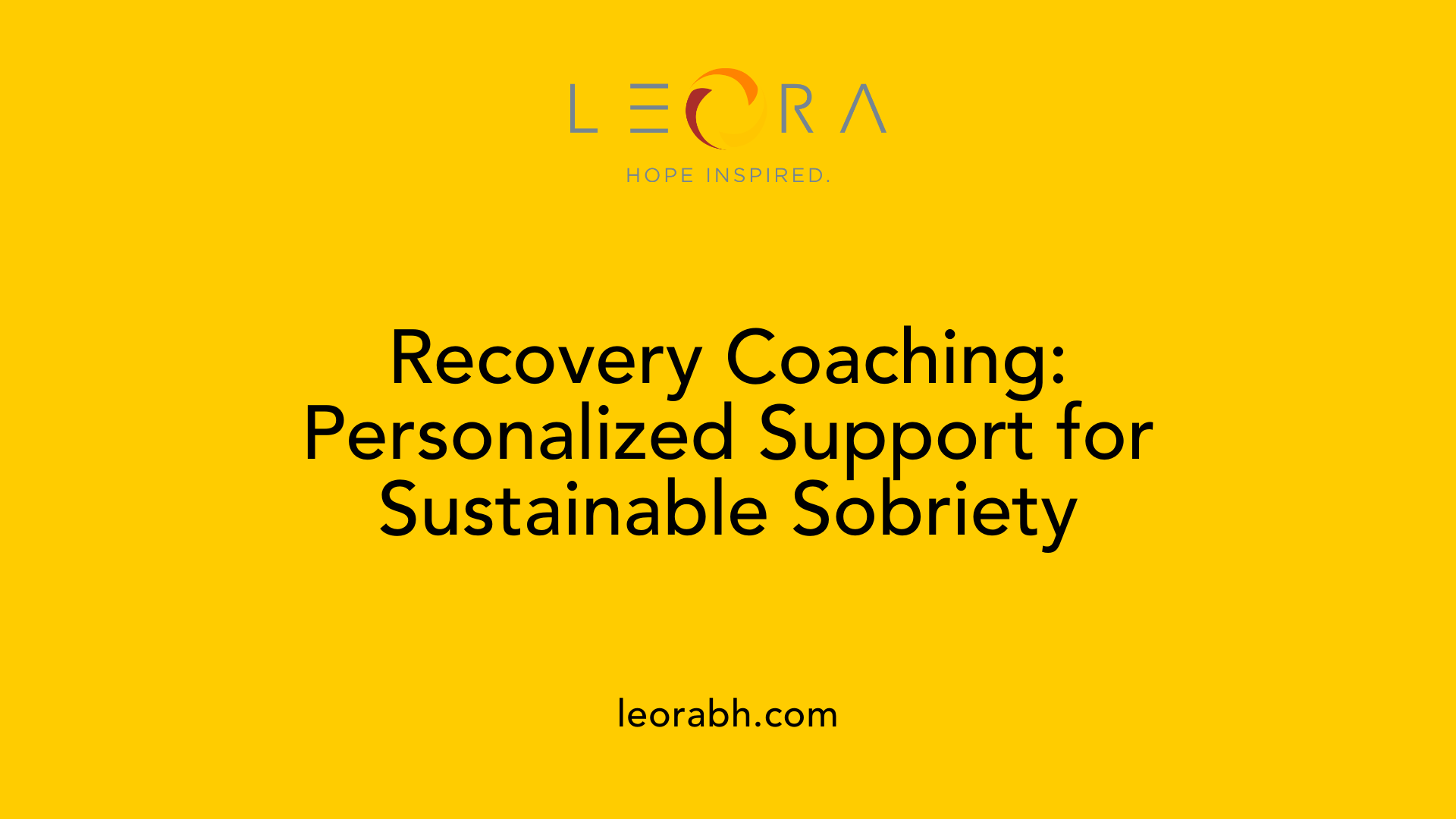Building a Strong Recovery Foundation with IOP Services
Strengthening Recovery Through Comprehensive Support and Structured Care
Building a Resilient Recovery Foundation with IOP Tools
Recovery from addiction is a multifaceted journey that requires a robust support system, structured routines, mental health care, and ongoing education. Intensive Outpatient Programs (IOPs) serve as a vital component in creating this foundation, offering flexibility, evidence-based therapies, and personalized support. This article explores how IOP services contribute to building a strong recovery base, emphasizing support networks, routines, mental health integration, and long-term relapse prevention strategies.
Core Components of a Strong Recovery Foundation

What are the key components and best practices for establishing a strong recovery foundation?
Creating a solid base for recovery involves integrating several important elements that work together to support lasting sobriety. One of the fundamental steps is building a supportive environment. This can be achieved by reconnecting with family members who understand and encourage recovery, participating in family therapy sessions to foster understanding and establish healthy boundaries, and involving friends or peers who promote positive behaviors.
Connecting with professional support is equally vital. Engaging with therapists, counselors, and case managers provides tailored guidance, helps address co-occurring mental health issues, and develops personalized relapse prevention strategies. These professionals also assist in creating routines and setting achievable goals.
Developing healthy coping mechanisms is essential to resilience. Techniques such as mindfulness meditation, stress management practices, and engaging in physical activities help manage cravings and emotional triggers. Avoiding toxic influences—people, places, or environments linked to past substance use—creates a safe space for growth.
Consistency is critical. Maintaining regular routines, including self-care, healthy eating, and sufficient sleep, supports physical and emotional stability. Continuing education about addiction and recovery helps individuals understand their journey better and stay motivated.
In addition, engaging in community resources like local recovery groups or online forums fosters a sense of belonging and shared understanding. Celebrating milestones and recognizing progress reinforce motivation and strengthen resolve.
Altogether, these practices form a comprehensive approach that addresses the physical, emotional, and social dimensions of recovery. Developing a balanced routine, nurturing meaningful relationships, and practicing self-awareness lay the groundwork for a resilient and fulfilling sober life.
The Power of Structure, Routines, and Meaningful Activities

What role do structure, routines, and meaningful activities play in recovery?
In the journey of recovery, having a well-established structure and daily routines offers essential stability. These frameworks create predictability, which helps individuals feel secure and in control of their environment. This sense of stability reduces stress and minimizes anxiety, making it easier to manage cravings and emotional fluctuations.
Developing healthy habits such as consistent sleep schedules, proper nutrition, and regular exercise is fundamental. These routines boost physical health and contribute to emotional well-being, supporting the brain's capacity to adapt and heal—a concept explained by neuroplasticity. When these behaviors are ingrained into daily life, they become second nature, reinforcing sobriety.
Engaging in activities that provide a sense of purpose, such as hobbies, employment, or volunteering, is equally important. These pursuits foster self-esteem and help rebuild a positive identity beyond substance use. They serve as healthy outlets for energy and emotion, reducing the likelihood of relapse by occupying time and mindspace productively.
Structured routines also include participation in therapy, support groups, and self-care routines. Consistent engagement in such activities nurtures resilience and accountability, which are crucial for long-term success. By creating a balanced daily schedule, individuals develop coping skills that help navigate life's challenges without turning to substances.
In summary, routines and meaningful activities form a vital foundation in recovery by promoting emotional stability, encouraging healthy habits, and fostering a purpose-driven life. These elements work together to build resilience, prevent relapse, and support ongoing personal growth.
Supporting Mental Health in Addiction Recovery through IOPs

How does mental health support contribute to addiction recovery and how do intensive outpatient programs (IOP) support this?
Addressing mental health is a fundamental part of sustained addiction recovery. Many individuals struggling with substance use disorders also face co-occurring mental health issues, such as depression, anxiety, or trauma. Treating these mental health conditions alongside addiction is vital because unresolved mental health issues can increase the risk of relapse.
Intensive Outpatient Programs (IOPs) are well-equipped to support mental health needs. They offer structured therapy options including individual counseling, group therapy, and family sessions that focus on building emotional resilience and coping skills. These services help individuals understand their mental health challenges, develop healthier ways to manage stress, and rebuild emotional stability.
Within IOPs, clients learn practical strategies for stress management, mindfulness, and emotional regulation. Psychoeducation about addiction and mental health helps reduce shame and stigma, encouraging ongoing engagement in treatment. Regular monitoring and access to psychiatric services, such as medication management when necessary, ensure that mental health concerns are addressed holistically.
By integrating mental health care with addiction treatment, IOPs foster a supportive environment for healing. They enable clients to maintain independence in their daily lives while receiving the care needed to manage underlying psychological issues. This comprehensive approach significantly enhances the chances of long-term sobriety and emotional well-being.
Research shows that combining mental health treatment with addiction recovery efforts through programs like IOPs leads to better outcomes. It helps prevent relapse, improves quality of life, and supports the development of healthy, sustainable routines. Overall, mental health support within IOPs offers a vital pathway to lasting recovery, addressing both the behavioral and emotional aspects of addiction.
Enhancing Recovery Outcomes with Recovery Coaching
 Recovery coaching plays a vital role in strengthening the efforts of individuals going through an Intensive Outpatient Program (IOP). One of the main benefits is the personalized, one-on-one support coaches provide. Unlike group therapy, this tailored approach addresses specific challenges and strengths, helping clients develop a clearer pathway for recovery.
Recovery coaching plays a vital role in strengthening the efforts of individuals going through an Intensive Outpatient Program (IOP). One of the main benefits is the personalized, one-on-one support coaches provide. Unlike group therapy, this tailored approach addresses specific challenges and strengths, helping clients develop a clearer pathway for recovery.
A significant aspect of recovery coaching involves goal setting and motivation. Coaches often utilize models like G.R.O.W. (Goal, Reality, Options, Will) and SMART (Specific, Measurable, Achievable, Relevant, Time-bound) to assist clients in establishing realistic, meaningful objectives. This structured process helps build confidence and provides a roadmap for progress.
Moreover, recovery coaches focus on addressing underlying issues that may hinder recovery, such as mental health concerns or poor lifestyle habits. By working on these root causes, they help clients develop essential life skills like stress management, effective communication, and emotional regulation. These skills are crucial for long-term resilience and relapse prevention.
In addition to emotional and behavioral support, recovery coaching encourages integrating physical wellness into recovery routines. Coaches may recommend practices like mindfulness, exercise, or self-care, helping clients achieve better overall well-being.
Building healthy relationships and reconnecting with community resources are also emphasized during coaching sessions. This helps clients establish a robust support network that sustains their sobriety. By bridging therapy, social connections, and community involvement, recovery coaching creates a comprehensive approach to recovery.
Overall, when combined with traditional therapies in an IOP, recovery coaching offers personalized support that enhances motivation, addresses individual challenges, and promotes sustainable recovery. It empowers individuals to take active roles in their healing process, leading to improved outcomes and a higher likelihood of maintaining sobriety in the long run.
Building a Support Network and Community Resources

What are effective strategies for building a support system during recovery?
Establishing a strong support network is fundamental for successful recovery. One of the most effective approaches involves participating in support groups such as Alcoholics Anonymous (AA), Narcotics Anonymous (NA), or SMART Recovery. These groups offer a safe space to share experiences, gain encouragement, and learn from others who are on a similar journey. Regular attendance fosters a sense of community and accountability, which can reinforce your commitment to sobriety.
Involving family, friends, and mentors is equally vital. Building trusting relationships with understanding and supportive individuals provides emotional comfort and practical assistance. Family therapy can educate loved ones about recovery, improve communication, and establish healthy boundaries, creating a nurturing environment.
Utilizing community services enhances recovery efforts. Local recovery centers offer resources like counseling, workshops, and peer support programs tailored to specific needs. Online forums and virtual support meetings have become increasingly popular, allowing individuals to connect with others regardless of location. These virtual spaces enable sharing struggles, successes, and advice, fostering a broader network of encouragement.
How can I effectively develop and maintain my support system?
To build a lasting support network during recovery, it’s important to actively engage in community programs and maintain consistent communication. Attending support meetings regularly helps strengthen bonds with peers who understand your challenges.
Seeking guidance from qualified professionals such as therapists and counselors offers personalized strategies for handling setbacks and emotional difficulties. They help tailor coping skills and recovery plans suited to your circumstances.
Creating a balanced mix of relationships—trustworthy family, friends, recovery peers, sponsors, and mental health professionals—provides diverse sources of support. Open communication, setting clear boundaries, and knowing when to seek help help preserve these relationships and ensure your emotional well-being.
In conclusion, combining participation in support groups, involving loved ones, and leveraging community resources creates a comprehensive, resilient network that supports ongoing recovery and personal growth.
Fostering Lasting Sobriety through Continuous Support and Education
Building a strong recovery foundation requires an integrated approach that combines supportive relationships, structured routines, mental health care, education, and ongoing community engagement. IOP services are instrumental in facilitating this process by providing flexible, evidence-based treatment tailored to individual needs. Recovery coaching, family involvement, peer support, and access to community resources create a comprehensive safety net that encourages resilience and independence. As recovery is a lifelong journey, maintaining these elements beyond initial treatment is essential to prevent relapse and cultivate a meaningful, sober life. Ultimately, the path to lasting recovery is supported by a nurturing environment, informed choices, and a committed support network.
References
- How to Build a Support System During Intensive Outpatient Treatment
- Rebuilding Your Life: Crafting a New Normal After Addiction Treatment
- How to Build a Strong Recovery Support Network
- Building a Strong Foundation: The Importance of Mental Health in ...
- How to Build a Strong Foundation in Early Recovery
- Exploring the Benefits of Recovery Coaching in an IOP Program
- Building a Strong Recovery Support System: Key Components
- How to Maintain Progress After an IOP - Positive Sobriety Institute
Find Your Inner Light
Related Articles
Schedule an Assessment
Leora Behavioral Health provides comprehensive treatment services, including ambulatory detox, mental health IOP, and SUD IOP, to support your journey toward lasting recovery.
Our caring team will guide you through the admissions process and create a personalized treatment plan tailored to your unique needs. We welcome walk-ins. If you or a loved one is struggling, reach out today. We’re here to help.


.svg)




.svg)
.svg)
.svg)
.svg)
